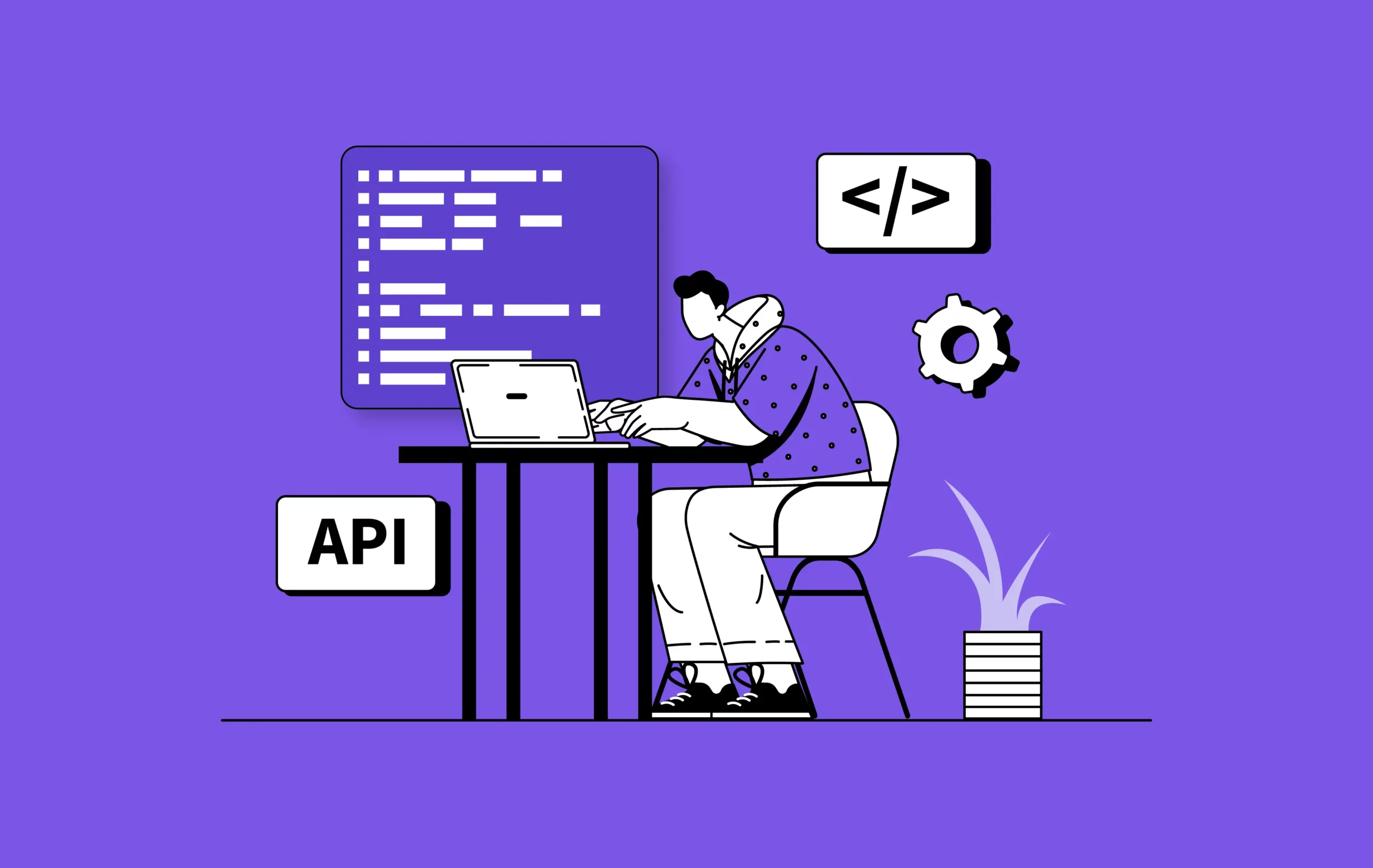- The Role of DevOps in Compliance Management
- Real-Time Compliance Monitoring
- Lowered Compliance Risks
- Consistency and Scalability
- Efficiency in Auditing
- Communication and Collaboration
- Better Security Preparedness
- Faster Time to Market
- DevOps Compliance Best Practices
- Incorporate Compliance Early
- Use DevOps Automation
- Dissect the Complete CI/CD Pipeline
- Include Multidisciplinary Teams
- Keep Track of Documentation
- Implement Infrastructure as Code (IaC)
- How Appinventiv Helps in Achieving DevOps Compliance for Enterprises
- Understanding the Regulatory Environment
- Building a Compliance Strategy
- Involving All the Key Stakeholders
- Implementing Automation
- Final Note
- FAQs
Today’s businesses operate in a time of virality where the news of hacks and privacy breaches in the software domain becomes mainstream in no time. In response, while users have become aware about their data’s business usage, government bodies have come up with several scalable compliances designed to meet the requirements of the changing digital space.
In a tough market situation like this, meeting compliances (such as HIPAA, PCI-DSS, GDPR, HITECH) set by regulatory bodies has become a pressing priority for businesses. But how can they ensure that compliance-readiness becomes a part of the software development cycle? The answer to this lies in DevOps compliance.
As well established by the approach already, DevOps is about continuity – in development, testing, and deployment – to ensure smooth software delivery. It ensures that companies are able to make compliance assurance a continued effort, post regular review against industry and regulatory demands.
However, even at the back of the promise of continuous readiness, highly regulated companies have been wary of integrating DevOps for compliance success as deploying frequent changes is often seen as a risk to governance controls and security.
Here are some other reasons why regulated companies have been unfavorable to the idea of using DevOps for compliance.
- Risk Reluctance – DevOps solutions for business compliance consists of changing established processes, which is deemed risky for highly regulated companies that need to be aligned with industry-grade compliance requirements.
- Legacy Systems – Regulated companies often use legacy processes and systems which are difficult to change. DevOps, on the other hand, needs a certain level of automation which is not possible in a legacy system.
- Siloed Culture – In governed companies, the work culture is typically of teams working in silos, which makes DevOps implementation challenging as the core principle of the approach lies in inter-team collaboration.
Even amidst the reluctance, over time, a number of big-tech companies have started turning towards DevOps compliance solutions to ensure that they follow industry and regulatory level security requirements in a continuous manner. Some of those names include – Amazon Web Services, Netflix, Capital One, Mirosoft, NASA, Target, and Pfizer.
Seeing the impact it has created on their business growth, several startups and enterprises across sectors like healthcare, FinTech, and SaaS have started planning out DevOps regulatory compliance inclusion.

Before we deep dive into the best ways of integrating DevOps for compliance success, let us look into the benefits it offers to businesses.
The Role of DevOps in Compliance Management
It is well-established that DevOps can fit with highly regulated industries by helping them improve efficiency and agility, all the while meeting the custom requirements of businesses. However, the use case of DevOps for business can be easily extended to make companies compliance-ready and here are the DevOps compliance benefits that will be the outcome.
Real-Time Compliance Monitoring
DevOps security compliance introduces automated compliance checks in the DevOps cycle, powering businesses to employ and monitor IT compliance in real-time. This approach allows for proactive detection of compliance issues, which results in timely identification and prompt redressal of challenges.
Lowered Compliance Risks
By constantly validating and monitoring compliance, businesses can lower compliance risks. Moreover, DevOps software development journey creates a system where non-compliant aspects can be tackled early in the development, leading to lowered instances of data leaks, regulatory violations, and security breaches which results in reputational and financial damages.
Consistency and Scalability
DevOps security and compliance practices such as automated configuration management and infrastructure as code enable businesses to achieve consistency and scalability in their compliance efforts. Through the automation of compliance configurations and checks, businesses can make sure that the requirements are applied consistently across multiple environments, thus lowering the risk of human error.
Efficiency in Auditing
Ensuring compliance with DevOps supports a streamlined reporting and audits process where the businesses can generate updated and accurate compliance reports effortlessly for the stakeholders. This easy availability of the compliance checks and documentation eases the audit process and lowers the efforts that go behind detailed compliance assessments.
Communication and Collaboration
The one prerequisite common in both DevOps and compliance is the culture of communication and collaboration. The fact that DevOps integration already sets up the path for inter-team collaborations makes it easy for the teams to align goals, share knowledge, and build an environment of shared responsibility, which on a company-wide level breaks silos, better communications, and improves organizational efficiency.
Better Security Preparedness
Security and DevOps compliance are very tightly knit together. When businesses integrate vulnerability assessments, security controls, and automated security testing in the DevOps cycle, they are able to identify and mitigate loopholes proactively, thus leading to minimal to zero instances of data loss and breach of security incidents.
[Also Read: How can enterprises protect their data in cloud environments?]
Faster Time to Market
DevOps is focused on delivering software at a more frequent and faster speed. By combining DevOps and compliance, businesses can apply practices like automated configuration and testing, leading to early access and addressal of compliance issues. This situation all together leads to reduced rework at a later time in the development lifecycle and faster time to market.
While the DevOps compliance benefits are too impactful to ignore, their success would call for a well-strategized plan of action for company-wide DevOps security and compliance integration.
DevOps Compliance Best Practices
DevOps compliance solutions offer a range of industry-level benefits when incorporated right. Here are some of the strategies that we vouch for when we employ our DevOps solutions and services within enterprises looking for bettering their compliance-readiness.

Incorporate Compliance Early
Compliance-based tasks such as testing should be incorporated at the early stages of the software lifecycle to ensure that compliance and security problems don’t become a future issue. Implementing this won’t just eliminate compliance-related roadblocks but also better software’s agility, security, and quality.
Use DevOps Automation
When building DevOps compliance solutions it will help to automate time-consuming processes like managing and analyzing pull requests, access restrictions, failovers, and code coverage, review. Doing this, businesses will be able to come to a point where the compliance rules get followed only by streamlining processes like recovery/failover.
Dissect the Complete CI/CD Pipeline
Historically, auditing of software used to occur at the production stage. But with DevOps compliance, the audit should be performed at all the phases of the DevOps CI/CD pipeline to make sure that every stage meets the necessary compliance requirements. The approach will help in identifying the origin of the problem and a prompt solution to it.
Include Multidisciplinary Teams
Earlier compliance was a matter which only the legal and security teams were concerned with. It did not fall into the software testers, IT operations, and developers arena. With the integration of DevOps compliance, however, everyone involved in the development lifecycle, including DevOps consulting companies, should be made aware of the compliance requirements so that the framework changes can happen on a frequent level.
Keep Track of Documentation
A major part of DevOps regulatory compliance lies in documentation. It is critical to make document management a shared responsibility of the teams that are working on releasing and making changes. This is where team collaboration plays a pivotal role. Only at the back of this collaboration, businesses will be able to eliminate documentation bottlenecks by using unified, trackable version control systems like ones given by Git and internal dashboards.
Implement Infrastructure as Code (IaC)
One of the top DevOps compliance best practices, IaC enables auditable and consistent infrastructure configuration and provisioning. When you treat infrastructure as a code, it becomes easier to replicate the same compliance infrastructure across multiple environments and track the changes happening across them. Using tools like CloudFormation and Terraform, teams can define and then manage the infrastructure resources.
Now while these practices make ensuring compliance with DevOps easier, implementing them in your business would require the assistance of a team that excels in this multi-faceted approach. This is where Appinventiv comes into the picture.
How Appinventiv Helps in Achieving DevOps Compliance for Enterprises
At Appinventiv, we work on DevOps compliance solutions and their roll-out by approaching it in ways that revolve around:
Understanding the Regulatory Environment
We gather a detailed understanding of the environment your company operates in, which includes identifying the specific requirements and regulations of the company and your services, products. This helps us with defining the scope of DevOps compliance adoption.
Building a Compliance Strategy
We build a strategy which considers all the broken down versions of making a company compliance-ready. This approach helps in creating a roadmap of how compliance will be achieved throughout the development cycle phases such as planning, development, test, and deployment.
Involving All the Key Stakeholders
Our DevOps consultants involve all the stakeholders from day one to ensure that the compliance issues can get resolved holistically from the outset and everyone is involved in building a culture of compliance.
Implementing Automation
Once we have the homework done, we start applying DevOps strategies for compliance management starting with automation. Our team creates a system where compliance tests and checks are automated to incorporate security and regulatory requirements in the development cycle.
The result? We have helped over 12 enterprises, across domains like healthcare, fintech, retail, and SaaS achieve compliance-readiness with the surety of continued scalability and security.
Final Note
DevOps for compliance is vital for organizations to meet the regulatory requirements without letting go of the efficiency and agility of software delivery. By incorporating compliance best practices in the DevOps cycle, businesses can achieve real-time monitoring, better security, and seamless collaboration between teams.
However, this integration comes with its own set of challenges that we have discussed in detail. The key to its smart integration lies in partnering with the right team of DevOps consultants. A team like us that possess significant expertise and experience to implement DevOps with absolutely no glitches involved.
Connect with Our DevOps Experts!
FAQs
Q. How can DevOps improve compliance?
A. The role of DevOps in compliance management can be seen through the many benefits it offers to companies. Some of the top ones include – real-time compliance monitoring, lowered compliance risks, consistency and scalability, efficiency in auditing, communication and collaboration, and better security preparedness.
Q. How to implement DevOps for compliance?
A. The way to implement DevOps in compliance lies in integrating the approach in the CI/CD pipeline to eliminate the need for creating manual checklists and documentation. The next critical step would be to establish a system of record that would enable the DevOps team to track compliance before a change is made to the code.



SRE vs DevOps vs Platform Engineering - A Comparative Analysis for Enterprises
In the fast-paced landscape of modern IT, enterprises face the important challenge of navigating and optimizing their operational frameworks. Three particularly prominent methodologies in this transformative journey are Site Reliability Engineering (SRE), DevOps, and Platform Engineering. Each approach has its own principles, advantages, and potential pitfalls, highlighting the diverse strategies available for businesses to enhance…

Measuring DevOps Success in the Enterprise with DORA Metrics
Digital transformation has turned nearly all businesses into software enterprises, empowering them to deliver cutting-edge solutions to meet evolving market needs. However, software development is a complex process involving multiple DevOps teams to work in different silos on a big project. These teams can be spread worldwide, making it challenging to track who is doing…












